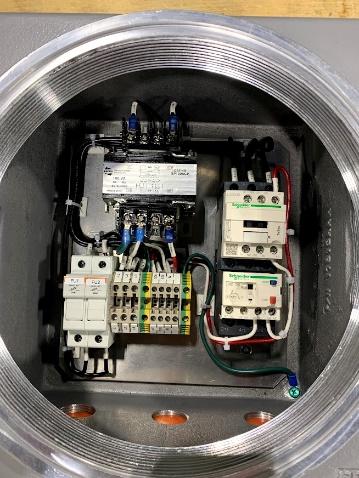Motor starters are the heart of machines and industrial processes that drive innovations and help perform our daily operations. Having a good knowledge of motor starters will help unlock how they power machines and mechanical operations.
Have you ever wondered how your car starts with a simple key operation? You have a motor starter in the background that helps with the operation. Similarly, huge industrial machines start smoothly and safely with a motor starter, so there isn’t any damage due to sudden power failure or voltage fluctuations. Let’s learn in detail about motor starters in this comprehensive guide.
What Are Motor Starters?
Motor starters are the relay of a machine that helps it to start and stop smoothly and protect it from high voltage or any other circumstance that can cause damage to the machine.
Benefits of Motor Starters
There are many benefits of motor starters, a few of which are discussed below:
● Motor Protection
Motor starters protect the machines from internal damages like overcurrent, high voltage, short circuits, and other errors that may cause a failure. They are designed with relays, fuses, breakers, and field coils that detect all errors and interrupt their operation, thus pausing abnormal operations, protecting the motor against damage, and extending its lifespan.
● Reduced Wear and Tear
When heavy machines operate, there is stress on other components, so we need a motor that can handle all the stress and protect other components of the machine, resulting in less wear and tear. This helps improve the longevity of the machines and save on costs.
● Energy-Efficiency
Motor starters help with energy efficiency; they contain components like soft starters and Variable Frequency Drives (VFDs) that make the machines start with a smooth transmission of current. VFDs also help control motor speed and operate according to the requirements, thus providing an energy-efficient operation.
● Automation
Motor starters can help with remote controlling and monitoring. By automating motor starters with machines, we can perform operations like starting, stopping and monitoring them from a remote location. This is especially useful in large industries where managing multiple motors can be difficult.
● Fault Detection or Diagnosis
Motor starters can detect faults and failures in machines. They can caution organisations with early alerts so that they can fix the machines on time. This enables timely maintenance and fixes of faults, reducing downtime and maximising the efficiency of machines.
● Safety
Motor starters are equipped with safety features like automatic shut-off during overcurrent, emergency stop buttons, and load isolation, which protects machines from damage. These safety features avoid accidents, protect human life, and minimise the risk of machine damage.
Real-World Applications
One ideal real-world example is the conveyor belt system used in manufacturing plants. This system helps to transfer heavy machines from one place to another. To maintain its efficiency, it needs a good start to operate smoothly. This is where motor starters come into the picture, helping conveyor systems start smoothly without a jarring movement that could damage the system over time.
Some other examples are elevators, escalators, and industrial machines like pumps, compressors, fans, and machines. The oil & gas industry and the mining industry also use motor starters. The use of motor starters in today’s world is in almost every industry where there’s the involvement of machines and requirements for smooth, efficient and reliable operation.
Motor starters are of seven types, but all these are classified into two main types – manual and magnetic starters. Manual starters use a simple push button, whereas a magnetic motor starter uses an electromagnetic formula to operate.
This was all about motor starters, their applications, benefits and classifications. We hope the information will help you gain more knowledge about motor starters and their role in today’s technologically advanced world.



